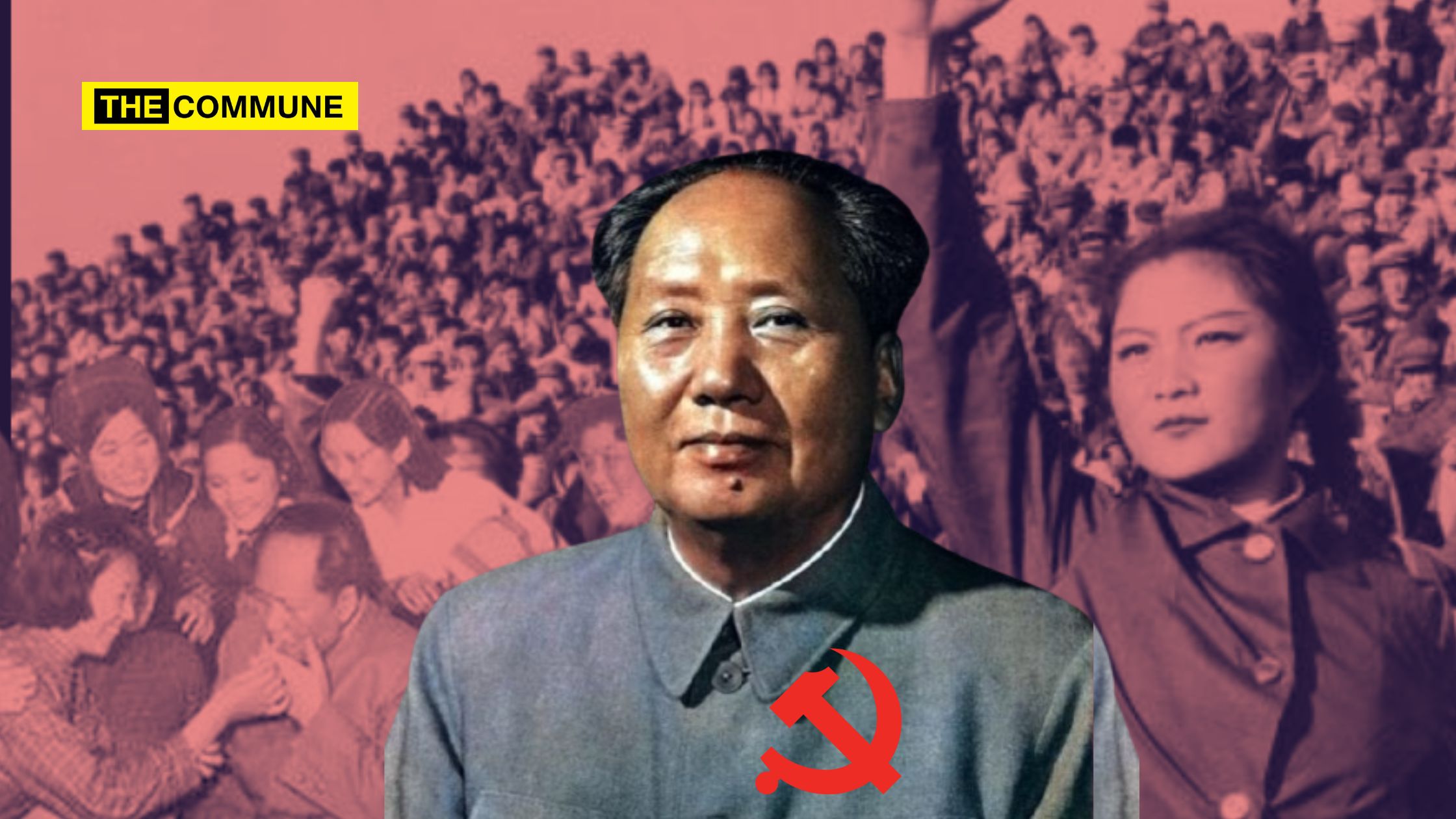
While the Communist Party often highlights Mao Zedong—the first Chairman of the People’s Republic of China—as a revolutionary icon who led the Long March, resisted both the Kuomintang and Japanese occupation, launched the Cultural Revolution, and helped shape a new era for modern China, his private life painted a far more controversial and complex portrait. Behind the veil of public heroism lay personal habits and behaviors marked by contradiction, indulgence, and disturbing excesses.
What follows is a collection of reported facts and allegations, many of which were documented or corroborated by individuals from Mao’s inner circle.
“Replenishing The Yang”: Mao’s Pursuit Of Vitality
As Mao aged, his health began to decline. Yet he remained convinced that intimacy with young women could restore his strength and vitality. He often spoke of the traditional yin-yang philosophy, suggesting that physical contact with young partners would replenish his energy. His doctors objected, but Mao persisted.
He even commissioned a special bed, slanted at an angle, and required his partners to read a classical Chinese text on sexuality, The Plain Girl’s Secret Way, before engaging with him. Many of these young women later suffered from untreated infections like STD’s—yet some perceived this as a mark of distinction, believing they had served the revolutionary cause in an unusual way. This was later disclosed in The Private Life of Chairman Mao, a memoir by Li Zhi-Sui, Mao’s personal physician.
A Troubling Relationship: Mao and the Young Dancer
One of Mao Zedong’s most controversial and troubling associations began in 1962, when he initiated a relationship with a 14-year-old performer named Chen Luwen. Chen, who later referred to herself as an “imperial concubine,” was a member of a performance troupe that entertained military personnel. At the time, Mao was 69 years old and would summon her to his private quarters under the guise of having her serve tea.
Her parents, horrified upon discovering the relationship, were unable to protest in the midst of the Cultural Revolution—where any critique of the Chairman could mean death. The relationship continued for years until Mao’s wife intervened, forcing him to end the affair and arrange for Chen’s quiet exit from public view.
Art, Control, and Nude Ballets
Mao Zedong maintained a troupe of performers known as the Cultural Work Troupe—young women selected not only for their artistic talents but largely for their physical appeal and discretion. On certain occasions, he would bring them to his private pool, where they were reportedly instructed to perform nude synchronized swimming routines. More frequently, Mao preferred ballroom dancing, an activity considered elitist by the standards of the time, yet tolerated in his case. These gatherings were coordinated by Vice Chairman Wang Dongxing and held at a venue called the Spring Lotus Chamber. During these events, Mao would dance with the women until he chose one to accompany him privately. Eventually, a bed was placed in an adjoining room to accommodate these encounters. These acts were largely shielded from the public eye, yet within elite circles, it was understood that these performances were part of Mao’s eccentric and indulgent lifestyle was another ugliest truth.
Personnel Mistress – Zhang Yufeng
Mao’s favorite mistress, Zhang Yufeng, began her relationship with him at age 16. Over time, she became his closest aide, acting as gatekeeper for all communication—including with Mao’s own wife, Jiang Qing. Zhang’s influence extended even to finances, controlling accounts and purchases for the Chairman’s household. Her control symbolized just how blurred the lines were between personal relationships and political power in Mao’s final years.
Mao’s wife, Jiang Qing, wasn’t content to remain humiliated. Taking inspiration from powerful women of China’s past, she is said to have sought relationships of her own—with writers, artists, and even a renowned table tennis player. Though mostly kept from public view, her private rebellion underscored the deep fractures in the Chairman’s household.
Given the documented relationships Mao Zedong had with significantly underage girls, including a well-known instance involving a 14-year-old, and later with 16-year-old it raises serious ethical and moral concerns. By today’s standards and definitions, such behavior would indeed be considered predatory and fall under the category of pedophilia.
Offering 10 Million Chinese Women to the U.S. For Positive Bilateral Trade
During a late-night diplomatic meeting on 17 February 1973, at his residence, Chairman Mao Zedong made a shocking and controversial suggestion to U.S. National Security Adviser Henry Kissinger. According to declassified documents released by the U.S. State Department, Mao proposed sending 10 million Chinese women to the United States as a way to stimulate bilateral trade and, half-jokingly, to burden the U.S. with a population challenge similar to China’s.
Mao remarked that China was economically struggling and had little to offer in trade, but it had an “excess” of women. Initially, he mentioned sending “thousands,” but quickly escalated the number to “10 million,” prompting laughter from those present, including Premier Zhou Enlai. Dr. Kissinger responded in kind, joking that the U.S. did not impose any “quotas” or “tariffs” on Chinese women, which added to the levity of the conversation.
Though Dr. Kissinger attempted to steer the discussion toward global strategic concerns and the Soviet threat, Mao repeatedly returned to his peculiar proposition, demonstrating both his unorthodox diplomatic style and the complex dynamics of Sino-American relations during that era.
A Leader with Unusual Habits
Mao was infamous for his rejection of modern hygiene. He refused to brush his teeth, claiming tigers never did—and so shouldn’t he. Instead, he swished tea around in his mouth. Over time, plaque buildup and infection led to serious dental issues. His physicians pleaded with him to adopt basic oral hygiene, but Mao consistently returned to his old routine was one of his sick nature.
Rejecting Toilets: Mao’s Rural Comforts
Despite owning modern amenities, Mao often avoided toilets, claiming they “smelled too much” and were unnatural. He preferred going into the woods, accompanied by aides who dug holes and guarded his privacy. Chronic constipation plagued Mao throughout his life, requiring regular medical intervention—even during the historic Long March, where his bodily challenges became part of political mythmaking.
When Mao visited Moscow in 1949, he expected a hero’s welcome from Joseph Stalin. Instead, he found himself isolated in a hotel room—and unknowingly studied. Soviet intelligence had rigged his toilet to collect samples of his waste for analysis, hoping to learn about Mao’s health and emotional state. Their findings remain secret, but the meeting that followed was tense and unproductive, signaling a rift between the two powers.
Mao Zedong has been labeled many things—revolutionary, thinker, statesman—but also a man riddled with contradictions. His personal life revealed stark contrasts to his public persona: he was both austere and indulgent, idealistic yet unpredictable, revered and feared in equal measure.
(With inputs from List Verse)
Subscribe to our Telegram, WhatsApp, and Instagram channels and get the best stories of the day delivered instantly.




